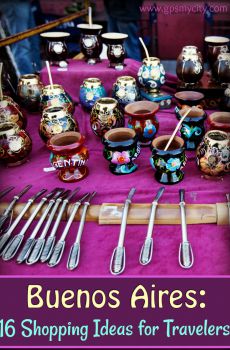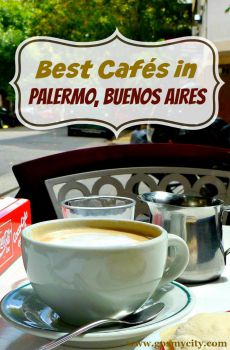
Palermo, Buenos Aires
Palermo stands as a distinctive district within Buenos Aires, situated to the city's northern expanse adjacent to the Rio de la Plata. Encompassing an expansive land area spanning 17.4 square kilometers and a populace numbering 256,927, Palermo claims renown as the world's epicenter of polo. Each year, the local area hosts the Argentine Polo Open, an international championship for elite club-level polo. Since 1893, this event takes place at the Campo Argentino de Polo in Palermo.
Palermo sprawls across its terrain, encompassing smaller enclaves with distinct characters such as the stylish Palermo Soho and the creative hub of Palermo Hollywood. The latter enclave houses a collection of diverse eateries, chic cocktail venues, and unconventional fashion boutiques. Parque Tres de Febrero, featuring a rose garden, planetarium, and serene rowing lakes, draws visitors seeking picnics and strolls.
The area's nomenclature traces back to the enduring Franciscan abbey of "Saint Benedict of Palermo," an alternate name for Saint Benedict the Moor. This saint, who lived from 1526 to 1589, serves as a secondary patron of Palermo, the capital of Sicily.
Palermo underwent rapid expansion in the latter part of the 19th century, particularly during Domingo Faustino Sarmiento's presidency. Sarmiento's tenure led to the creation of the Buenos Aires Zoological Gardens and Parque Tres de Febrero in 1874, followed by the establishment of Plaza Italia and the Palermo Race Track in 1876.
In the 20th century, Palermo saw the emergence of the Buenos Aires Botanical Gardens (1902), Jorge Newbery Airport (1948), a water purification facility, various sports clubs, the Galileo Galilei planetarium (1966), and the Buenos Aires Japanese Gardens (1967).
Palermo sprawls across its terrain, encompassing smaller enclaves with distinct characters such as the stylish Palermo Soho and the creative hub of Palermo Hollywood. The latter enclave houses a collection of diverse eateries, chic cocktail venues, and unconventional fashion boutiques. Parque Tres de Febrero, featuring a rose garden, planetarium, and serene rowing lakes, draws visitors seeking picnics and strolls.
The area's nomenclature traces back to the enduring Franciscan abbey of "Saint Benedict of Palermo," an alternate name for Saint Benedict the Moor. This saint, who lived from 1526 to 1589, serves as a secondary patron of Palermo, the capital of Sicily.
Palermo underwent rapid expansion in the latter part of the 19th century, particularly during Domingo Faustino Sarmiento's presidency. Sarmiento's tenure led to the creation of the Buenos Aires Zoological Gardens and Parque Tres de Febrero in 1874, followed by the establishment of Plaza Italia and the Palermo Race Track in 1876.
In the 20th century, Palermo saw the emergence of the Buenos Aires Botanical Gardens (1902), Jorge Newbery Airport (1948), a water purification facility, various sports clubs, the Galileo Galilei planetarium (1966), and the Buenos Aires Japanese Gardens (1967).
Want to visit this sight? Check out these Self-Guided Walking Tours in Buenos Aires. Alternatively, you can download the mobile app "GPSmyCity: Walks in 1K+ Cities" from Apple App Store or Google Play Store. The app turns your mobile device to a personal tour guide and it works offline, so no data plan is needed when traveling abroad.
Palermo on Map
Sight Name: Palermo
Sight Location: Buenos Aires, Argentina (See walking tours in Buenos Aires)
Sight Type: Attraction/Landmark
Sight Location: Buenos Aires, Argentina (See walking tours in Buenos Aires)
Sight Type: Attraction/Landmark
Walking Tours in Buenos Aires, Argentina
Create Your Own Walk in Buenos Aires
Creating your own self-guided walk in Buenos Aires is easy and fun. Choose the city attractions that you want to see and a walk route map will be created just for you. You can even set your hotel as the start point of the walk.
Palermo Area Walking Tour
Situated just back from one of the main thoroughfares, Santa Fe Avenue (Avenida Santa Fe), Palermo is a relaxed and culturally delightful area full of restaurants, cafes, and wall murals. The tree-lined streets are shady and many of the older Spanish-style houses were converted into small shops without compromising their original character. It’s an excellent place in which to sample the city’s... view more
Tour Duration: 2 Hour(s)
Travel Distance: 3.5 Km or 2.2 Miles
Tour Duration: 2 Hour(s)
Travel Distance: 3.5 Km or 2.2 Miles
Recoleta Neighborhood Walking Tour
One of Buenos Aires’ most beautiful neighborhoods, Recoleta is the city’s heart of art and elegance, grace and modernism, culture and leisure. Here you will find lots of things to do, like visiting museums, galleries and cultural centers; relaxing in one of the beautiful parks and plazas; or sampling the delicious local food.
This walking tour along Recoleta begins at the Ateneo Grand... view more
Tour Duration: 2 Hour(s)
Travel Distance: 3.4 Km or 2.1 Miles
This walking tour along Recoleta begins at the Ateneo Grand... view more
Tour Duration: 2 Hour(s)
Travel Distance: 3.4 Km or 2.1 Miles
May Avenue Walking Tour
May Avenue (Avenida de Mayo) is one of the grandest and most important avenues in Buenos Aires, leading from Plaza de Mayo with the Pink House at one end, to Argentina’s National Congress building at the other. Named in honor of the May Revolution of 1810 which lead to the country’s independence from Spain, it is difficult not to compare this grand thoroughfare to other major boulevards around... view more
Tour Duration: 2 Hour(s)
Travel Distance: 2.3 Km or 1.4 Miles
Tour Duration: 2 Hour(s)
Travel Distance: 2.3 Km or 1.4 Miles
Buenos Aires Introduction Walking Tour
Buenos Aires is the capital city of Argentina. The city was first founded as Ciudad de Nuestra Señora Santa María del Buen Ayre in 1536 by the Spanish. But this settlement was quickly abandoned in 1542, and the city was refounded in 1580. Buenos Aires boomed as a port city focused on trade.
Argentina gained independence from Spanish rule during the May Revolution of 1810. Today, the May... view more
Tour Duration: 2 Hour(s)
Travel Distance: 4.7 Km or 2.9 Miles
Argentina gained independence from Spanish rule during the May Revolution of 1810. Today, the May... view more
Tour Duration: 2 Hour(s)
Travel Distance: 4.7 Km or 2.9 Miles
Useful Travel Guides for Planning Your Trip
Popular Palermo Restaurants, Buenos Aires
Although many visitors tend to think that Argentina is a meat and potatoes country, the rich cultural heritage from Italy, Spain, Portugal, and other European countries provide a veritable smorgasboard of dining options. Palermo is the barrio in Buenos Aires often referred to as 'The Restaurant...
Buenos Aires: 16 Shopping Ideas for Travelers
Other than a cool place to be and a dream destination for many adventure-minded folk, Buenos Aires is a great culture hub where one can experience first-hand all that Argentina has to offer - great football, terrific wine, killer steaks, and much much more. This guide is to help you steer yourself...
Top 6 Bars in San Telmo, Buenos Aires
With its cobbled streets, colonial era buildings and vibrant music and art scene, San Telmo is a great place to soak up the eclectic nature of Buenos Aires’ nightlife. The area boasts dozens of bars and cafes, with some of the city’s oldest lying next to the more modern. Indeed, San Telmo...
Top 12 Cafes in Palermo, Buenos Aires
The word "Palermo", believe it or not, may refer not just to Sicily, Italy, but also to Buenos Aires, Argentina. Indeed, this neighborhood (barrio) is largest in the city and is trendy and bohemian, renowned for its boutique shopping, cafes, restaurants, bars, and nightclubs. Oftentimes,...








